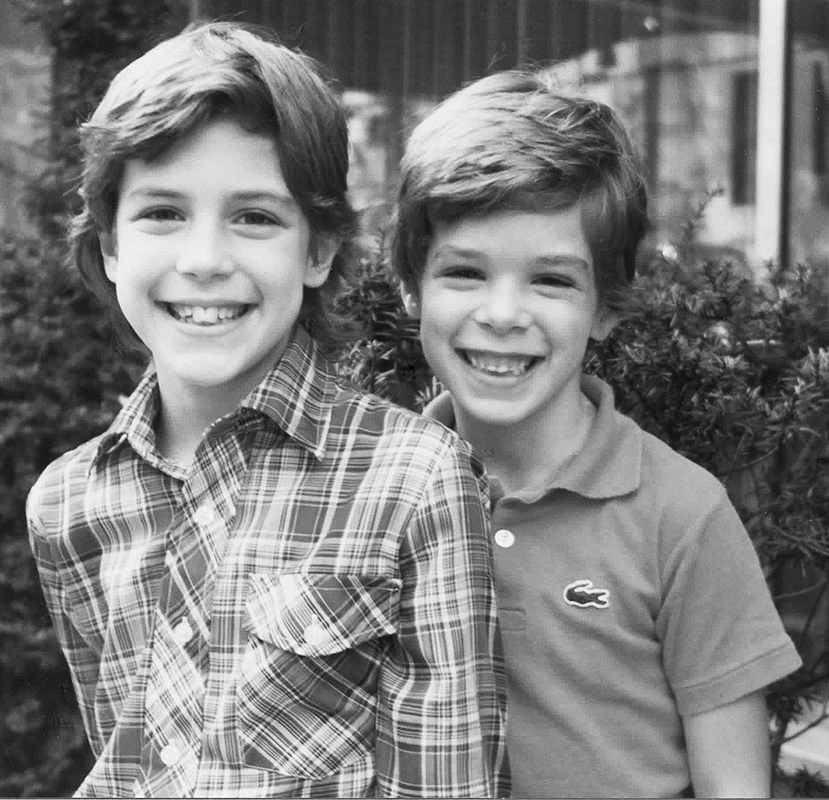Manhattan, Watching Over Me
On a bright August afternoon in 1980, my 7-year-old brother and I, a 10-year-old with a pixie haircut and a toothy smile, set up a vegetable stand on a busy corner a block from Bloomingdale’s. At 61st and Lexington, we hawked zucchinis and tomatoes from a plastic case our mother used to store files, charging a quarter each for our crop, grown at our family’s little beach house on Long Island. My mother thought this was a fine example of entrepreneurship.

It was also one of many examples of our independence. Our mom wasn’t standing watch nearby; we were on our own, collecting our money and handing over our produce—carefully tied in plastic baggies. We cleared our inventory and returned unharmed to our apartment, our profit in our pockets.
On that day and many others, the city looked after me. The 1970s and early 1980s were a low point in New York City’s history, with soaring crime, drugs, and gangs. Yet I hailed cabs by myself at eight, and rode the crosstown bus alone, and I was never bothered by so much as a pickpocket.
My parents were remarkably relaxed about bringing up kids in the city. I don’t remember any lectures about staying away from strangers, or injunctions like “never go below 14th Street.” I was expected to exhibit common sense, and I did. I knew to clutch my bag close to my body when I was in a crowd, to stay alert to my surroundings. Riding alone in the back of taxicabs, I peered out at the street signs, making sure I was not being led on a circuitous, meter-inflating trip. But my parents more or less let me go where I wanted, on my own or with friends, and I rarely felt afraid.
Apartment living came with a handy resource: the doorman. If you ran out of money to pay the cabdriver, the doorman would cover you. When my brother and I let ourselves into the apartment after school—I was surprised, as an adult, to learn the term “latchkey kid,” and even more surprised to discover that I had been one—we knew that if we had a problem, we could always call down on the intercom. These men—Bobby, Vinny, Paul, and others (they were all men)—were like cool teenage babysitters. They slipped you the spare key, reminded you to bring an umbrella, and never told your parents anything.
Some afternoons my brother and I walked to First Avenue with a pocket full of quarters to feed to Ms. Pac-Man and Donkey Kong in a dark arcade. We didn’t check in with our parents by cell or text since neither existed. We came home when we were supposed to.
My parents slept in our apartment’s living room on a platform bed so my brother and I wouldn’t have to share a bedroom. My room had lavender walls, a pair of twin beds for sleepovers, and a view of the delivery entrance for Bloomingdale’s, where my 12th birthday party took place. Each girl got a $5 gift certificate to spend, and afterwards we went around the corner to Carvel for ice cream cake.
After my brother and I left for college, my parents tore out the platform bed and remade the apartment so they once again had a living room. I was living all over the country then—first at Vassar, then Chicago; Washington, DC; Southern California; and a small town in South Carolina, for graduate school and jobs in journalism—but eventually I made my way back to the city, getting married in a Fifth Avenue penthouse with picture windows that had views down to Wall Street and all the way to New Jersey.
I ended up living in New Jersey, in a quiet suburb. When I visit my parents these days, Vinny the doorman still gets me the spare key, and I run into an elderly woman in the elevator who knew me when I was a kid.
I don’t know the city intimately anymore, the way you know a spouse or a child. We’re more like old friends who get together for dinner and reminisce about the old days with a walk around the neighborhood, to see what’s changed and what’s still there. Driving home, I take a last look at the skyline as the road coming out of the Lincoln Tunnel curves into New Jersey. There is Manhattan, waiting for me to return.

Jennifer Greenstein Altmann ’91 is an associate editor at the Princeton Alumni Weekly magazine, where she writes about the arts and serves as the books editor. She is a frequent host of literary events in New Jersey.
